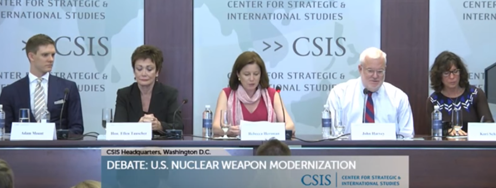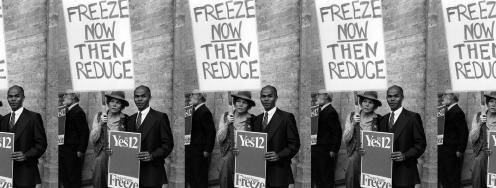Nuclear Cooperation Agreements Fail to Protect U.S. Security, Sokolski Testifies
US policy is putting nuclear trade above national security, says Henry Sokolski in a testimony to the House Foreign Affairs Committee. Sokolski, a Ploughshares Fund grantee, is Executive Director of the Nonproliferation Policy Education Center (NPEC). He warns that the model agreement reached last year between the United States and the United Arab Emirates is failing. He says in his written testimony submitted last week:
Despite recent efforts to establish tougher nonproliferation requirements in the U.S.-United Arab Emirates (UAE) civilian nuclear cooperation deal, many states [Russia, France, Japan South Korea, Canada, and China] are not buying this model. Worse, the State Department now seems to be backing off promoting this deal as a “gold standard” for nuclear cooperation more generally. Recently, State announced that it would proceed with a nuclear cooperative agreement with Vietnam that lacked any of the key nonproliferation provisions contained in the UAE agreement (i.e., a requirement that the recipient of aid ratify the IAEA’s Additional Protocol on nuclear inspections and that the recipient forswear acquiring the means to make nuclear fuel or heavy water). Meanwhile, several Middle Eastern states, including Turkey, Egypt, Saudi Arabia, and Jordan, have refused U.S. requests to adopt similar conditions.
Sokolski stresses three main points:
- Key nonproliferation provisions set forth by the Atomic Energy Act are being neglected
- The United States must require tougher nonproliferation commitments in exchange for nuclear trade
- We must urge other nuclear supplier states to adopt tougher restrictions also.
If there is a "renaissance of nuclear power," with more countries build nuclear reactors, Sokolski argues that it is not inveitable that this would lead to more countries getting nuclear weapons. He takes on directly a ominous claim from the World Nuclear Association:
It is likely that more countries will foolishly choose to acquire nuclear weapons. If they are really determined to do so, there is little really that the world can do to prevent them - the main effort has to be in dissuading them from this course of action. How many countries will have nuclear weapons by 2030 is hard to say, but there could well be a total of 15 by then.
Sokolski cautions policymakers that "being blasé about the links between civilian and military nuclear energy or presuming we can do nothing to limit these threats is irresponsible. Certainly, promoting major civilian nuclear exports without doing significantly more to prevent proliferation would be a mistake."
It is time for the U.S. and other Nuclear Supplier states to begin demanding more from countries interested in nuclear cooperation. However, in order to do this the process in which such agreements are developed must be updated and tightened. Ultimately, the Atomic Energy Act passed in 1954, which outlines how nuclear cooperation agreements are made law, is dated and must be adjusted to deal with the proliferation challenges of 2010.
Sokolski's advocates several solutions, including having both Houses of Congress actively approve future U.S. nuclear cooperative agreements.
The House Foreign Affairs Committee hearing on this issue is set for Friday, September 24. Among those testifying is Sharon Squassoni, a member of the Sustainable Partnership With Russia Group supported by Ploughshares Fund.


